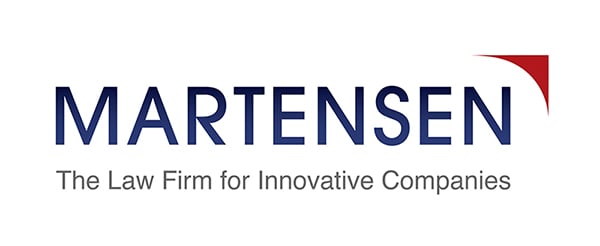Navigating Government Contracts: Decoding Critical FAR/DFARS Clauses
Government contracts often come with a maze of regulations and requirements. Among the tangle of rules, the Federal Acquisition Regulation (FAR) and the Defense Federal Acquisition Regulation Supplement (DFARS) stand out as crucial guidelines for any business seeking to work with the government. These regulations include hundreds of clauses, some of which can seem overwhelming and unrelated to certain businesses. However, for small or emerging technology companies, a few of these clauses hold critical importance. Navigating these terms is an essential step in understanding and negotiating contractual obligations.
Understanding the FAR/DFARS Landscape
 The FAR and DFARS contain a comprehensive set of rules governing the acquisition process by federal agencies. These regulations aim to ensure fair and transparent procurement practices and outline the clauses that must be included in contracts. While these clauses serve to protect the interests of the government, they also impose certain obligations on contractors. Despite the necessity of these regulations, the sheer size and complexity of the FAR/DFARS can intimidate many businesses, particularly smaller tech companies that may not have dedicated legal teams or extensive experience with government contracting.
The FAR and DFARS contain a comprehensive set of rules governing the acquisition process by federal agencies. These regulations aim to ensure fair and transparent procurement practices and outline the clauses that must be included in contracts. While these clauses serve to protect the interests of the government, they also impose certain obligations on contractors. Despite the necessity of these regulations, the sheer size and complexity of the FAR/DFARS can intimidate many businesses, particularly smaller tech companies that may not have dedicated legal teams or extensive experience with government contracting.
Essential FAR/DFARS Clauses for Small Tech Companies
Among the numerous FAR/DFARS clauses, several are especially critical for small and emerging technology companies to grasp. Understanding and adhering to these regulations can make or break a successful contract and impact the ability to compete for follow-on contracts while failure to comply can lead to severe consequences. Here are some key clauses to focus on:
FAR Clauses
- Subcontracting Clauses (FAR 52.219-9): Also known as the Small Business Subcontracting Plan, FAR 52.219-9 focuses on promoting the participation of small businesses in government contracting opportunities through subcontracting. It is a requirement for certain contracts to include this clause, particularly those that exceed a specific monetary threshold and involve subcontracting opportunities. Small companies often rely on subcontractors to fulfill their contractual obligations. Understanding the requirements and limitations of subcontracting can help avoid any legal potholes.
- Cost Accounting Standards (CAS) and Cost Principles (FAR Part 31): These regulatory frameworks ensure consistency and uniformity in the allocation and measurement of costs incurred by government contractors. Companies that perform cost-reimbursement or incentive-type contracts should adhere to CAS regulations to ensure they accurately allocate costs and maintain proper accounting practices.
- Small Business Set-Aside Provisions (FAR 19.5): This is aimed at fostering growth and development of small businesses by reserving certain government contracts exclusively for small business participation. It is designed to ensure that a portion of government contracts are set aside for small businesses, giving them the opportunity to compete and secure contracts that might otherwise be awarded to larger, more established companies.
- Options (FAR 17.2) and Funding: The federal government will frequently use options in their contracts as they allow the government to span multiple fiscal years without having to recompete the contract. However, companies should not rely on these options or perform work covered by the option until they have actually been exercised. Funding for government contracts are also impacted by when authorization acts are passed, any continuing resolutions or government shutdowns that occur, and the type of funds being used.
DFARS Clauses
 Data Rights Clauses (DFARS 252.227-7013 and 252.227-7014): These clauses define the government's rights to use, disclose, reproduce, and distribute technical data and computer software developed under U.S. Department of Defense (DoD) contracts. For contractors engaging in defense-related contracts with the DoD, it’s important not only to adhere to these clauses to ensure compliance with the DoD’s data rights regulations but proactively safeguard their intellectual property through proper documentation, data rights assertions, and proper marking. Even more important is understanding and establishing a sound IP strategy so that compliance does not result in being non-competitive.
Data Rights Clauses (DFARS 252.227-7013 and 252.227-7014): These clauses define the government's rights to use, disclose, reproduce, and distribute technical data and computer software developed under U.S. Department of Defense (DoD) contracts. For contractors engaging in defense-related contracts with the DoD, it’s important not only to adhere to these clauses to ensure compliance with the DoD’s data rights regulations but proactively safeguard their intellectual property through proper documentation, data rights assertions, and proper marking. Even more important is understanding and establishing a sound IP strategy so that compliance does not result in being non-competitive. - International Traffic in Arms Regulations (DFARS 227.675-1): This is aimed to control the export and import of defense-related articles and services on the U.S. Munitions List (USML). ITAR regulations dictate that information and materials pertaining to defense and military-related technologies may only be shared with U.S. persons unless the Department of State has granted authorization.
Navigating the Flow Down Process
The challenge for many small tech companies lies not only in understanding these clauses but also in navigating the process of flow downs. Flow downs refer to the requirement that prime contractors extend certain FAR/DFAR clauses to their subcontractors. This process is crucial for maintaining consistency and compliance throughout the supply chain. However, navigating flow downs can be complex and intimidating, particularly for small businesses and emerging contractors. Understanding the intricacies of the flow down process is crucial for upholding contractual obligations and mitigating potential risks.
To navigate the flow down process effectively, small tech companies should:
- Conduct Thorough Contract Reviews: Carefully review the prime contract to identify the applicable FAR/DFARS clauses and understand the specific flow down requirements for subcontractors.
- Maintain Open Communication: Establish clear communication channels with the prime contractor to ensure a comprehensive understanding of the flow down requirements and expectations as well as communicating back to the prime practical limitations.
- Seek Legal Counsel and Expert Advice: Consult legal experts or professionals with experience in government contracting to ensure a thorough understanding of the flow down process and its implications.
- Implement Robust Compliance Measures: Establish internal compliance protocols to ensure that subcontractors understand and adhere to the required FAR/DFARS clauses.
While the complexities and size of these clauses can be daunting, focusing on crucial areas such as data rights, subcontracting, cost accounting, and small business set-asides can provide a solid foundation for navigating the contractual landscape. By understanding these critical clauses and effectively managing flow downs, small tech companies can position themselves for success in the competitive and regulated realm of government contracting.
Don’t Let Government Contracts Scare You
Our team of experts are well-versed in government contracting and will help you navigate the complex landscape of government contracts. Get in touch with us for professional guidance.




